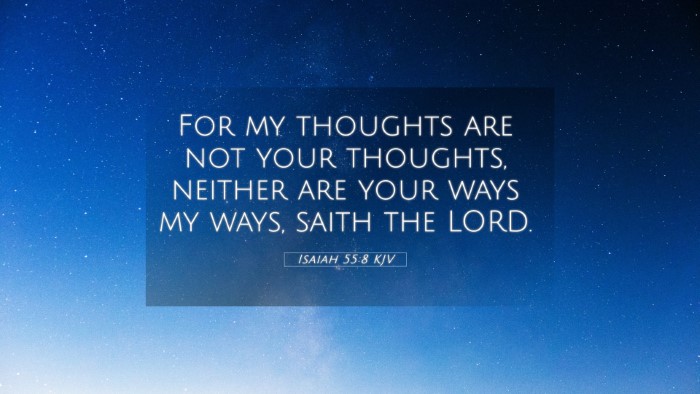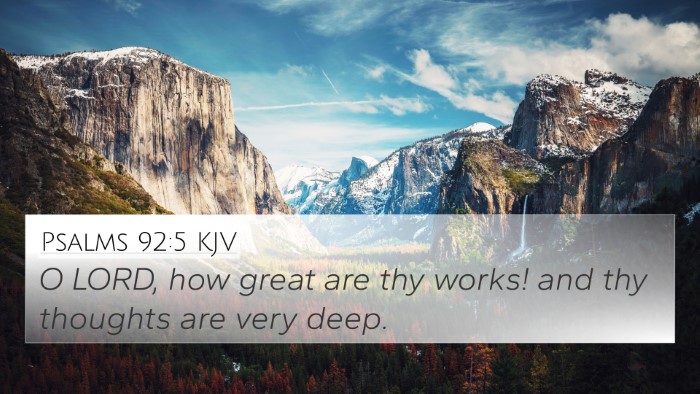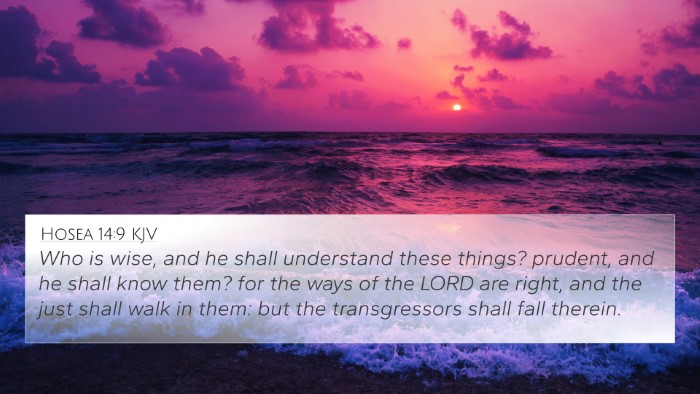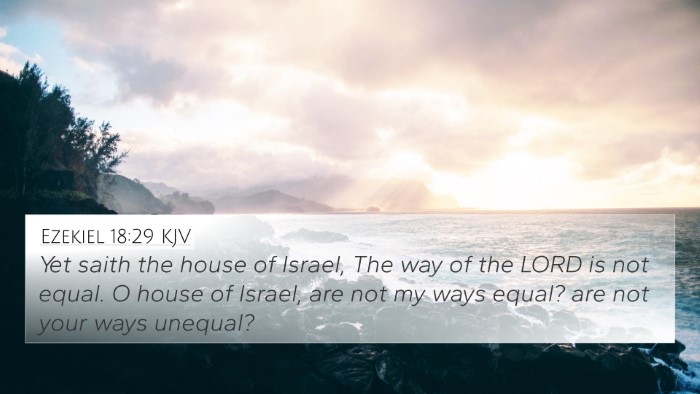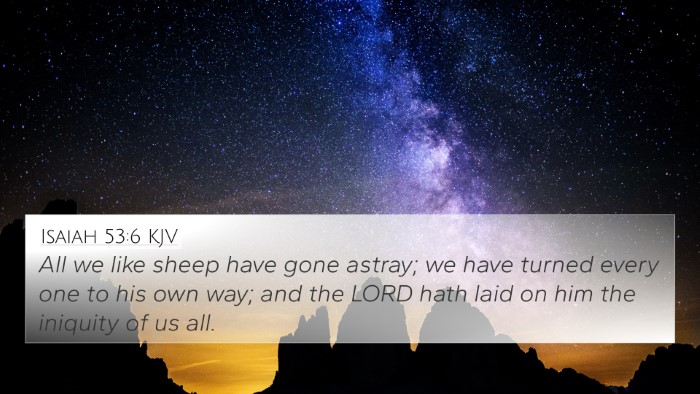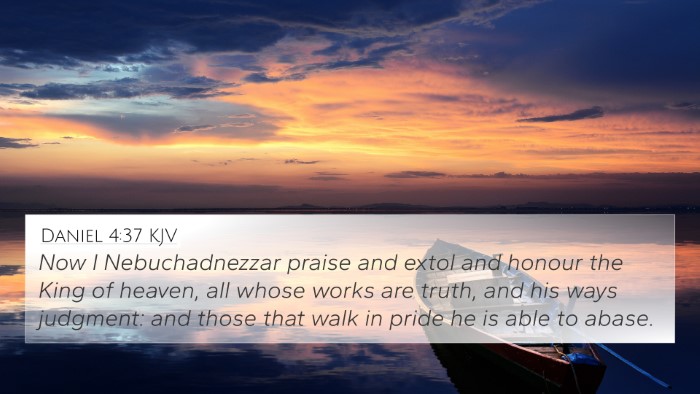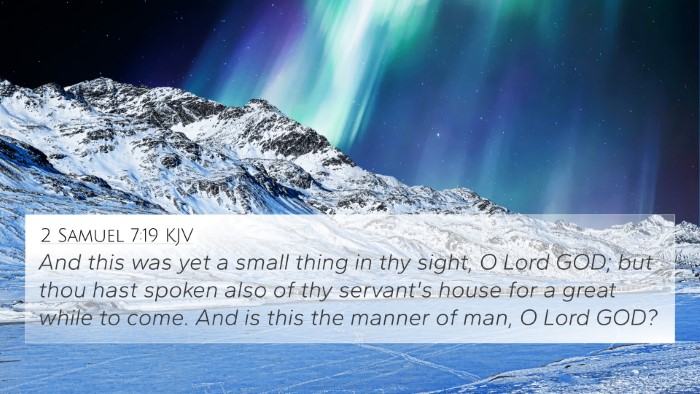Understanding Isaiah 55:8
Isaiah 55:8 states: "For my thoughts are not your thoughts, neither are your ways my ways, saith the Lord." This verse encapsulates a crucial theme in the relationship between God and humanity, emphasizing the vast differences between divine and human understanding.
Commentary Insights
The following insights have been compiled from public domain commentaries to provide a comprehensive understanding of this verse:
Matthew Henry's Commentary
Matthew Henry highlights that this verse serves as a reminder of God's sovereignty and the limitations of human wisdom. He emphasizes that divine plans often transcend human understanding, encouraging believers to trust in God's perfect knowledge and timing.
Albert Barnes' Notes
Albert Barnes elaborates on the notion of God’s incomprehensibility, asserting that God's thoughts and plans are vastly superior and fundamentally different from those of mankind. Barnes encourages readers to seek God's ways and thoughts earnestly, knowing they far exceed our capabilities.
Adam Clarke’s Commentary
Adam Clarke comments on the transformative power of divine wisdom. He notes that God's ways may often appear puzzling or perplexing to us, but they reflect ultimate wisdom and love. Clarke urges believers to submit to God's higher wisdom rather than rely solely on their understanding.
Key Themes
- Divine Wisdom vs. Human Understanding: This verse illustrates the gulf between human and divine perspectives.
- Trust in God: Encourages believers to trust in God's plans despite their own limited understanding.
- Sovereignty of God: God’s sovereign ways and thoughts are paramount, shaping the course of history and individual lives.
Bible Cross-References
Several verses enhance the understanding of Isaiah 55:8 through thematic and doctrinal connections. Below are notable cross-references:
- Romans 11:33: “Oh, the depth of the riches both of the wisdom and knowledge of God! How unsearchable are his judgments, and his ways past finding out!”
- Proverbs 3:5-6: “Trust in the Lord with all thine heart; and lean not unto thine own understanding. In all thy ways acknowledge him, and he shall direct thy paths.”
- Psalms 147:5: “Great is our Lord, and of great power: his understanding is infinite.”
- Job 11:7-9: “Canst thou by searching find out God? canst thou find out the Almighty unto perfection? It is as high as heaven; what canst thou do? deeper than hell; what canst thou know?”
- 1 Corinthians 1:25: “Because the foolishness of God is wiser than men; and the weakness of God is stronger than men.”
- Isaiah 40:28: “Hast thou not known? hast thou not heard, that the everlasting God, the Lord, the Creator of the ends of the earth, fainteth not, neither is weary? there is no searching of his understanding.”
- Psalms 38:20: “They also that render evil for good are mine adversaries; because I follow the thing that good is.”
- Jeremiah 29:11: “For I know the thoughts that I think toward you, saith the Lord, thoughts of peace, and not of evil, to give you an expected end.”
- Ephesians 3:20: “Now unto him that is able to do exceeding abundantly above all that we ask or think, according to the power that worketh in us.”
- Isaiah 48:6: “Thou hast heard, see all this; and will not ye declare it? I have shewed thee new things from this time, even hidden things, and thou didst not know them.”
Connections and Themes
Isaiah 55:8 serves as a cornerstone for understanding the relationship between divine purpose and human experience. The connections between this verse and others in scripture illuminate the often perplexing nature of God's will:
- Relates to the theme of God's Plan in Jeremiah 29:11, reinforcing trust in His intentions.
- Emphasizes the importance of faith and reliance on God, as noted in Proverbs 3:5-6.
- Explores the mystery of God's wisdom, as seen in Romans 11:33, and calls for humility in understanding.
Conclusion
Isaiah 55:8 profoundly encourages believers to appreciate the transcendence of God’s thoughts and ways. By engaging with various commentaries and cross-references, one can garner a richer, deeper understanding of this verse and its implications for faith and daily living. Trusting in God's wisdom amid life's uncertainties assures believers of His perfect plan.
Explore Further: As you study this verse, consider utilizing tools for Bible cross-referencing and a Bible concordance to delve deeper into its connections and thematic relevance throughout Scripture.

